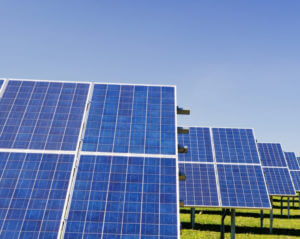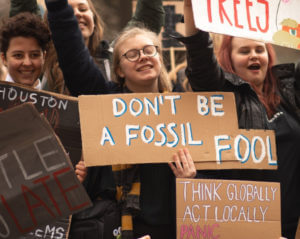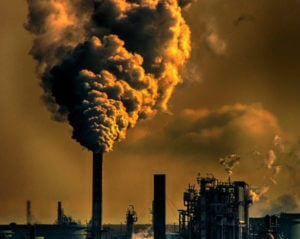
Positive news stories about the state of our environment are few and far between. More common are stories that we’re almost at the point of irreparable damage, that if we don’t act now, it will be too late. While this may be true, it’s also important to recognize the positive steps nations have taken to do their part in saving the planet.
The following is an excerpt from Grassroots Rising by Ronnie Cummins. It has been adapted for the web.
Regenerators, given our current dire situation, need to operate on the old adage that “the darkest hour is right before the dawn.” Instead of dwelling on the negative, we need to search out and highlight positive trends and practices. On the contemporary scene, there are numerous signs of change and powerful countervailing trends to the degenerative status quo, not only in the United States but across the world. Rather than dwelling on gloom and doom, we need to focus on positive, potentially world-changing trends. Here are a few recent positive developments on the climate and political fronts that we can all draw upon for inspiration:
Practically every government in the world, except for the Trump administration in Washington, D.C., has signed on to the Paris Climate Agreement to move to net zero fossil fuel emissions by 2050, with many nations promising to move even faster. Three dozen nations have also signed on to the lesser-known but critically important “4 per 1000” Initiative, a bold international policy initiative and agreement, complementing the global transition to 100 percent renewable energy, to draw down enough excess atmospheric carbon through regenerative food, farming, and land use practices to not only mitigate but actually reverse global warming.³
Renewable energy already has begun to replace fossil fuels, not only in more democratic and egalitarian regions like the Nordic countries or in industrial powerhouses like Germany and the United States, but in China and India as well. It is now cheaper in many parts of the world to invest in wind and solar power than to build new coal plants. Soon it will be more profitable to install solar and wind power than to keep existing fossil fuel plants running. And it now appears that electric cars, trucks, buses, and trains have the potential to replace most gas- and diesel-powered vehicles within the next three decades.4
Global investments in renewable energy are currently estimated to be $300 billion a year. If we can push governments and the private sector to increase these investments to several trillion dollars per year—less than half of what the world’s governments now spend on propping up fossil fuels—we should be able to make a just transition to near 100 percent renewable energy by 2030 to 2050.5 Investors and public institutions, under the pressure of climate activists, are starting to divest trillions of dollars from the fossil fuel industry, while increasing their investments in renewable energy and conservation.6
If food, farming, and peace activists can expand the divestment movement into pressuring investors, institutions, and everyday people to divest significant resources, not only from the fossil fuel industry but from industrial agriculture and the military-industrial complex as well, and build up political power in the United States and other nations, we can achieve our goals. With a new regenerative investment and funding network, we can free up trillions of dollars currently propping up fossil fuels, industrial agriculture, military spending, and destructive land use and reinvest this money in a complete overhaul of our food, farming, energy, transportation, manufacturing, and land use systems,  providing green jobs and economic livelihoods for hundreds of millions of rural and urban workers worldwide.
providing green jobs and economic livelihoods for hundreds of millions of rural and urban workers worldwide.
A critical mass of the global grassroots is starting to wake up and resist—North, South, East, and West—by organizing politically, slowly but surely developing practical and equitable solutions to our most pressing problems: climate change, poverty, injustice, environmental pollution, war, deteriorating public health, forced migration, unemployment, discrimination, and political corruption. In the United States, progressive and radical forces, led by youth, women, and minorities, appear poised, over the next decade, to sweep the majority of corrupt politicians from office, not only in the nation’s forty thousand cities, towns, and counties but at the federal level as well.
Similar trends are emerging in dozens of other countries, even in repressive dictatorships such as China, Russia, and Iran and in violent narcostates such as Mexico. The bottom line is that people all over the world are fed up with corrupt politicians, greedy businesses and corporations, organized crime, and a polluted environment. As the millennials are starting to understand, there is no future for their generation, nor for any of us, without fundamental change and Regeneration.
A growing global majority understand that if we wish to survive, our nations, especially the United States, simply cannot continue to maintain their respective global empires or spheres of interest or to subsidize fossil fuels, the military-industrial complex, Big Pharma, and degenerative food, farming, and land management practices. Nor can multinational corporate elites continue their “profit at any cost” practices, reinforced by hyperconsumerism on the part of consumers.
The number one national security threat for the United States and other nations today is not competition or conflict with Russia, China, India, or Iran but rather the growing danger of catastrophic climate change and the unraveling of the biological carrying capacity of Earth to support human civilization. Likewise, the biggest threat facing our counterparts in Russia, China, India, and Iran is not the United States, NATO, and the CIA but global warming and the destruction of our common home.
Instead of rallying behind politicians who demonize other nations or religions, deny that climate change or other serious global issues exist, pander to giant corporations, or harp on divisive single issues, we must collectively acknowledge that we, the global grassroots, are all one in our need for a livable environment, stable climate, equitable economy, meaningful employment, peace, and democracy. Focusing on deploying, financing, and scaling up renewable energy and regenerative food, farming, and land use systems, many of which are already in place, or partially in place, we have the power to reignite hope, activism, and participatory democracy at the global grassroots and thereby regain control over our destiny.
What we need in order to save ourselves from disaster is obviously not a classic revolutionary insurgency; we won’t be preparing for a frontal assault on the Kremlin or the White House. (In the twenty-first century this type of revolution is impossible, given that we the people are now totally under surveillance, policed, and outgunned.) What we need instead is a nonviolent but determined “March of Regeneration” that moves through all of our communities and institutions, a peaceful but forceful global grassroots uprising from below in all of the 195 countries of the world.
We need a nonviolent Regeneration revolution on a global scale of public education, grassroots lobbying, marketplace pressure, and scaling up of best practices, systems, and policies, especially in the energy, food, farming, and land use sectors.
Given the overwhelming power of the establishment and its forces of intimidation and repression, we will need to carefully develop and deploy our new Regeneration paradigm or ideology like a form of jujitsu or martial art, with the power to peacefully divide, co-opt, and conquer our political and corporate adversaries, while at the same time regenerating the Earth and uniting, across issues and borders, a critical mass of the global grassroots. This is a Regeneration revolution and a new global solidarity that can move us away from impending catastrophe and give birth, as Pope Francis puts it, to “an awareness of our common origin, of our mutual belonging, and of a future to be shared with everyone.”7
Notes
